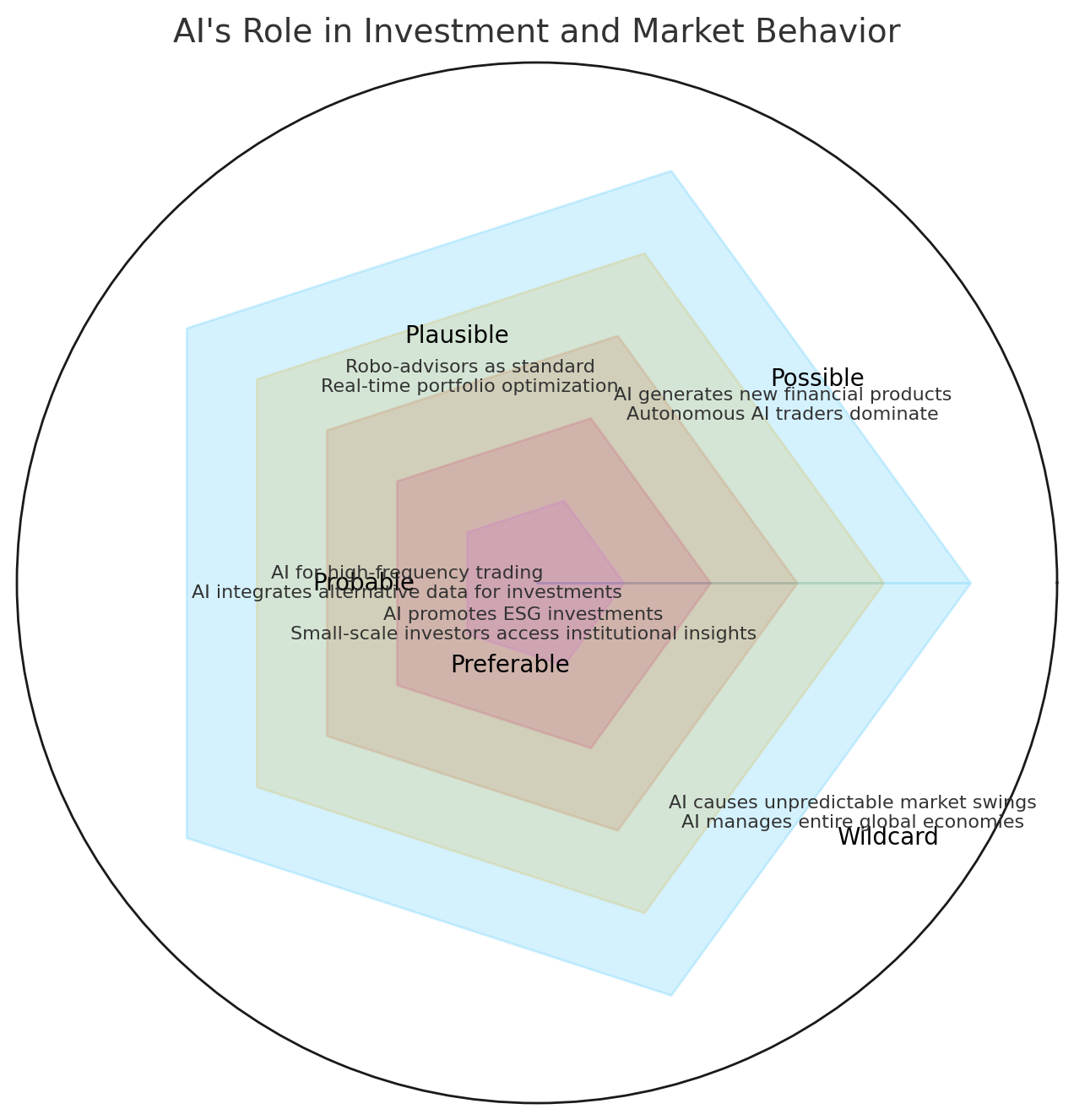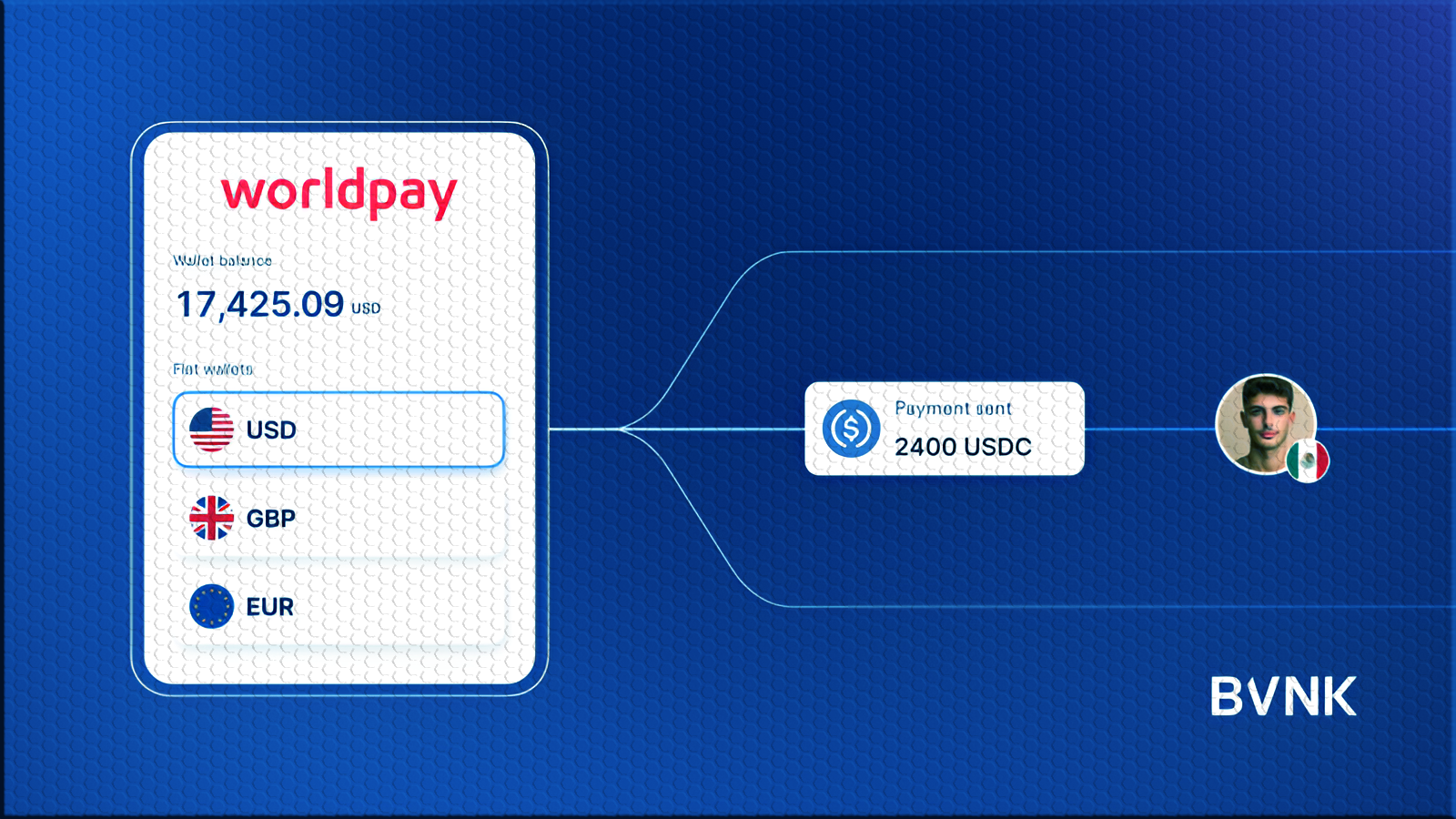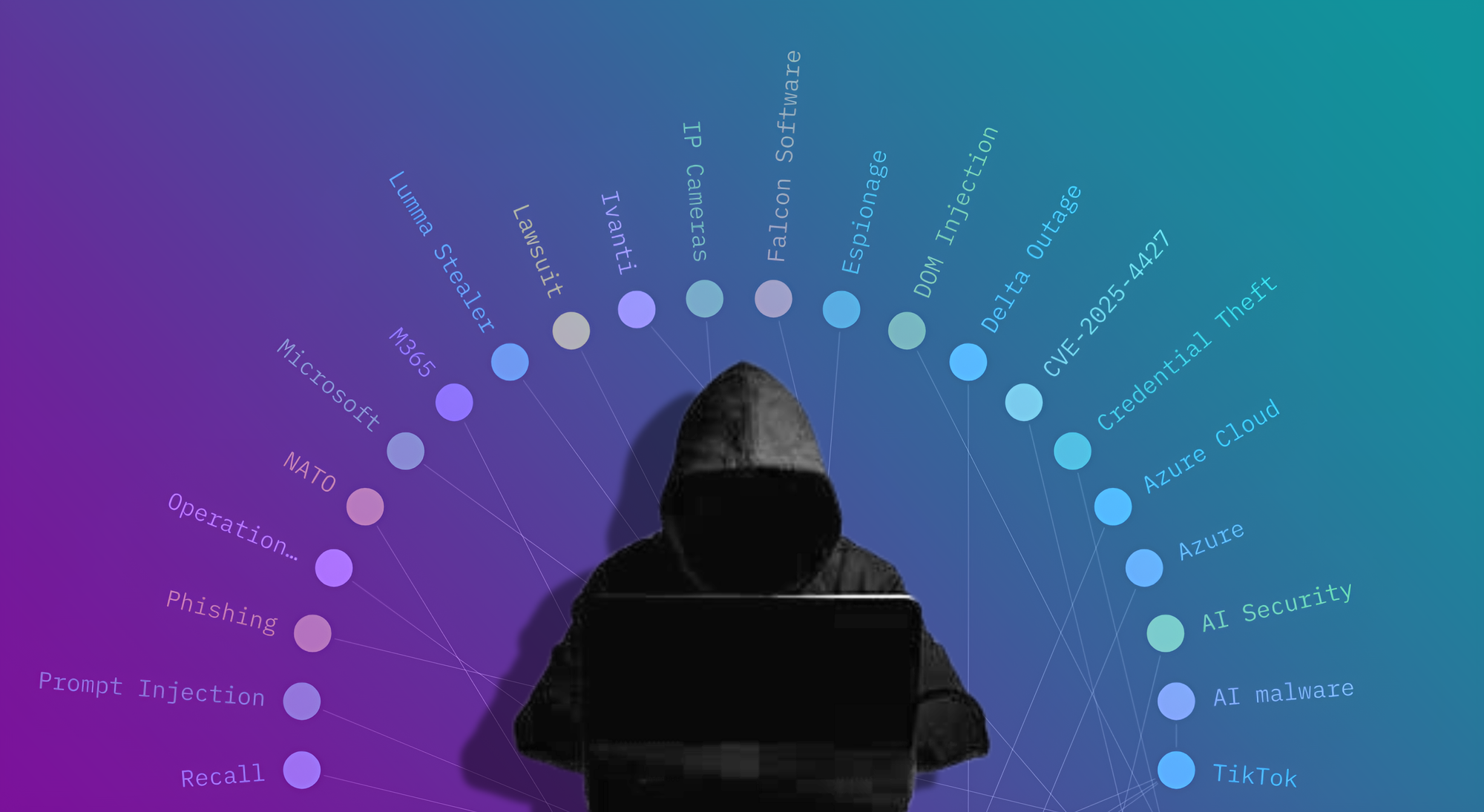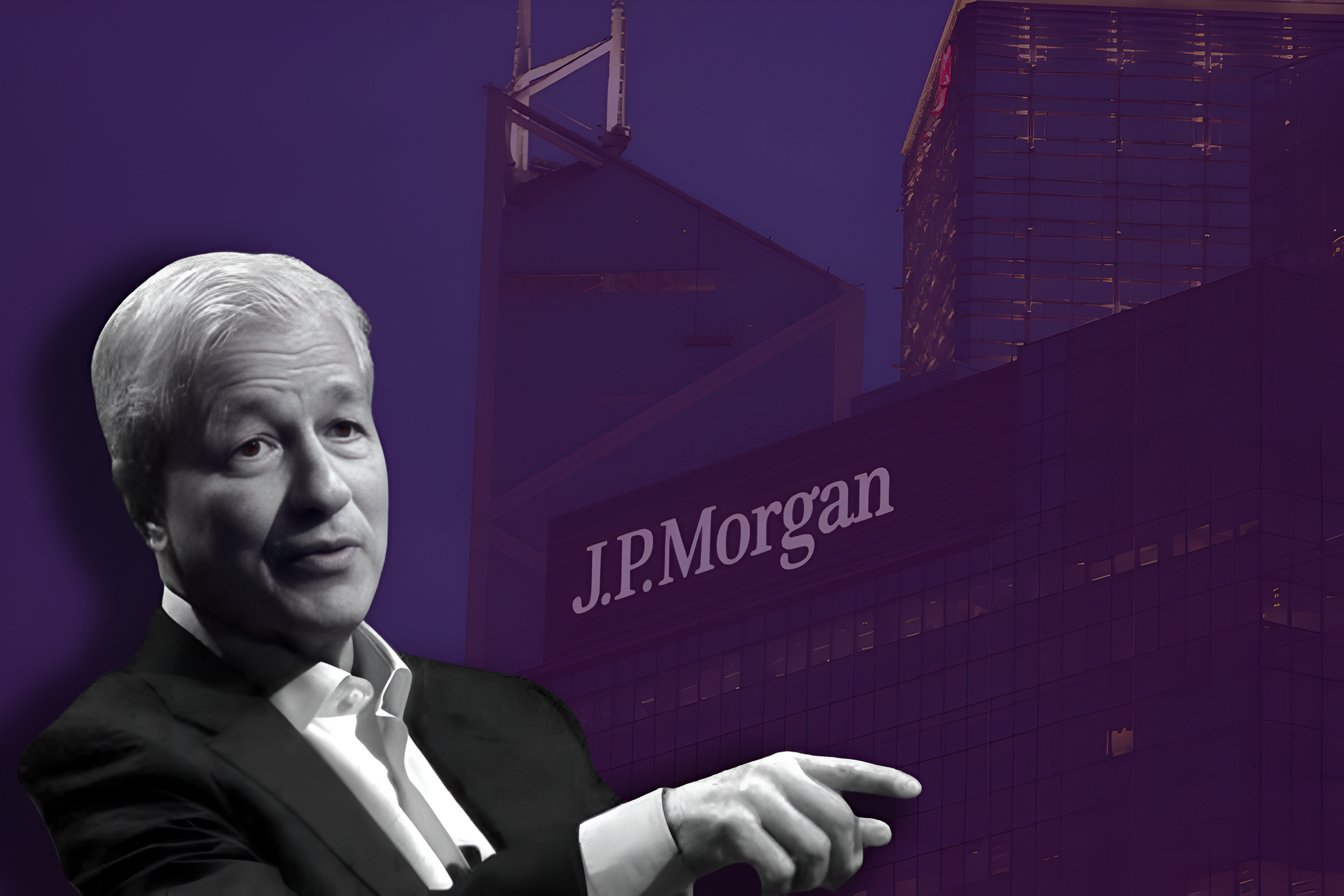Artificial intelligence (AI) is already transforming the world of finance, and its influence is expected to grow even more in the coming years. One of the most exciting areas where AI is making a significant impact is in investment and market behavior. By leveraging AI, financial institutions, traders, and even individual investors can access insights, optimize portfolios, and execute trades faster and more efficiently than ever before. In this article, we will explore the possible, plausible, probable, preferable, and wildcard futures of AI in investment and market behavior.
1. Groundbreaking AI Innovations in Investment
In the realm of possible futures, AI could bring about some truly revolutionary changes to the financial landscape, including:
- AI Generating New Financial Products: Imagine a world where AI isn't just a tool for analysis, but a creator of entirely new types of financial products. For example, AI could generate predictive market algorithms accessible to everyday investors, providing them with tools to predict market behavior with high accuracy. These products could democratize access to market insights and investment opportunities, leveling the playing field between institutional and retail investors.
- Autonomous AI Traders: As AI evolves, it could lead to the rise of fully autonomous trading systems that can outcompete human-managed hedge funds. These AI traders would analyze vast datasets, identify market trends, and execute trades at speeds far beyond the capabilities of human traders. Such AI-driven systems could revolutionize trading strategies, making traditional hedge funds and even large investment banks rethink their approaches.
While these scenarios are speculative, they highlight the potential of AI to push the boundaries of what is possible in the financial world.
2. AI-Driven Solutions Taking Shape
Looking at the plausible futures, AI's role in investment is becoming increasingly tangible. Several applications are already in development or on the cusp of widespread adoption:
- AI-Powered Robo-Advisors: The emergence of AI-powered robo-advisors is already reshaping retail investment platforms. These AI systems can provide personalized financial advice based on an individual's goals, risk tolerance, and market conditions. Over time, robo-advisors are likely to become the norm, offering affordable and accessible financial advice to a wider range of people, including those who previously had little access to wealth management services.
- Real-Time Portfolio Management: AI-driven portfolio management systems can now optimize investment strategies in real-time. By analyzing market conditions, economic data, and individual asset performance, these AI systems can make instantaneous adjustments to portfolios. This level of agility is particularly valuable in volatile markets, where small adjustments can lead to significant returns. As AI continues to advance, these systems are expected to become more accurate, efficient, and accessible to individual investors.
These applications are already in motion, and we can expect them to become mainstream in the near future.
3. AI Becoming a Core Component of Financial Markets
Some AI-driven innovations are already becoming a key part of the financial industry. These probable futures reflect developments that are highly likely to shape the market in the coming years:
- AI in High-Frequency Trading: High-frequency trading (HFT) has already seen the use of AI algorithms to analyze market data and execute trades in fractions of a second. As AI technology improves, the reliance on these systems for HFT is expected to increase. AI can process and analyze vast amounts of data almost instantaneously, giving firms a competitive edge in executing large volumes of trades and profiting from minuscule price movements.
- Integrating Alternative Data: AI is increasingly being used to analyze alternative data sources—such as social media trends, satellite imagery, or web traffic patterns—to inform investment decisions. For example, AI might analyze social media sentiment to predict stock movements or use satellite images to assess retail store traffic or agricultural production. The integration of alternative data is expected to become a standard practice in investment strategies, providing a more holistic view of market behavior.
These developments are already underway and likely to become central to market operations, creating a new paradigm in financial decision-making.
4. Using AI for Sustainable and Inclusive Investing
As AI's role in investment grows, its potential to contribute to a more sustainable and inclusive financial system is increasingly important. The preferable futures envision a world where AI is used not just for profit, but to support ethical and socially responsible investment practices:
- AI and Sustainable Investment Practices: AI could play a key role in promoting sustainable investment by prioritizing Environmental, Social, and Governance (ESG) metrics. AI systems could analyze companies' environmental impact, social responsibility initiatives, and governance practices to help investors choose companies that align with their values. This shift could drive more capital toward sustainable industries and encourage businesses to adopt ethical practices.
- AI for Small-Scale Investors: One of the biggest barriers to entry in the world of investing is access to high-quality research and insights. AI-powered platforms could level the playing field by enabling small-scale investors to access the same market insights as institutional investors. With AI tools for personalized advice, real-time portfolio management, and risk analysis, individual investors could make more informed decisions, empowering them to participate more actively in financial markets.
These preferable futures align with the growing demand for socially responsible investing and greater access to financial markets, creating opportunities for both ethical growth and financial inclusion.
5. The Unpredictable Potential of AI in Finance
In the wildcard futures, AI could lead to outcomes that are unexpected, unpredictable, or even disruptive to traditional financial markets:
- Unpredictable Market Swings: As AI systems become more complex and integrated into the global financial system, emergent behaviors could lead to unpredictable market swings. For example, if multiple AI systems independently make similar investment decisions based on the same data, they could create a feedback loop that causes extreme volatility. This could lead to flash crashes or sudden market movements, making AI-driven trading a double-edged sword.
- AI-Managed Global Economies: In a more radical wildcard scenario, AI could be used to manage entire global economies. With the ability to process vast amounts of data and simulate economic scenarios, AI could make decisions about monetary policy, taxation, and global trade that affect entire countries and industries. While this could lead to more efficient management of the economy, it raises significant concerns about governance, accountability, and the loss of human oversight in economic decision-making.
These wildcard scenarios represent the more extreme possibilities of AI's influence on global financial markets, highlighting both the promise and the risks of widespread AI adoption.
Conclusion: Embracing the Future of AI in Investment
AI is undoubtedly transforming the way we think about investing and market behavior. From democratizing financial products and optimizing portfolios to promoting sustainable investments and managing global economies, AI's potential is immense. While the possible, plausible, probable, preferable, and wildcard futures offer a range of exciting prospects, they also highlight the importance of thoughtful regulation and ethical considerations.
As we continue to integrate AI into financial markets, it is crucial that we remain vigilant about its risks while embracing its ability to democratize and improve financial decision-making. The future of investing and market behavior is being shaped by AI—and it is a future full of possibilities, challenges, and opportunities for growth.




















Discussion